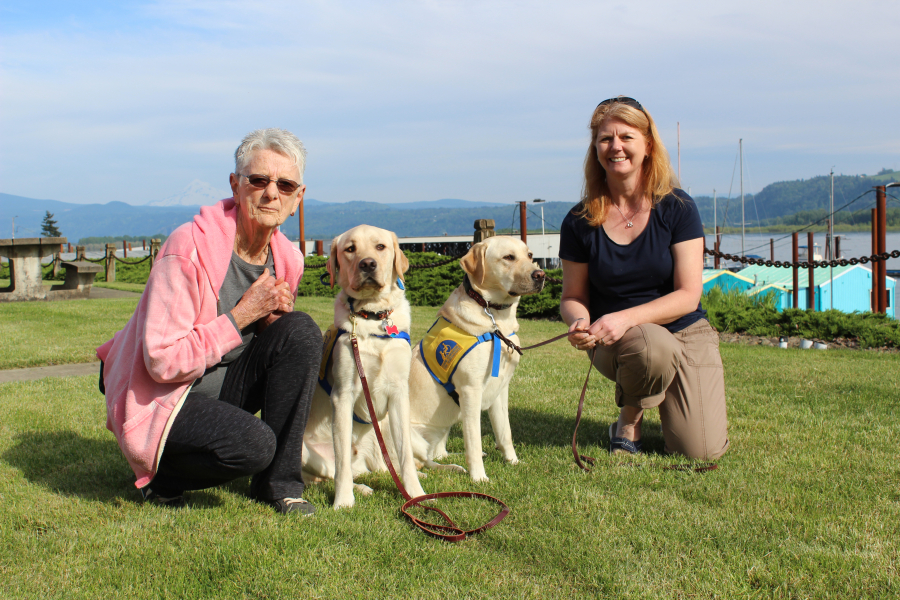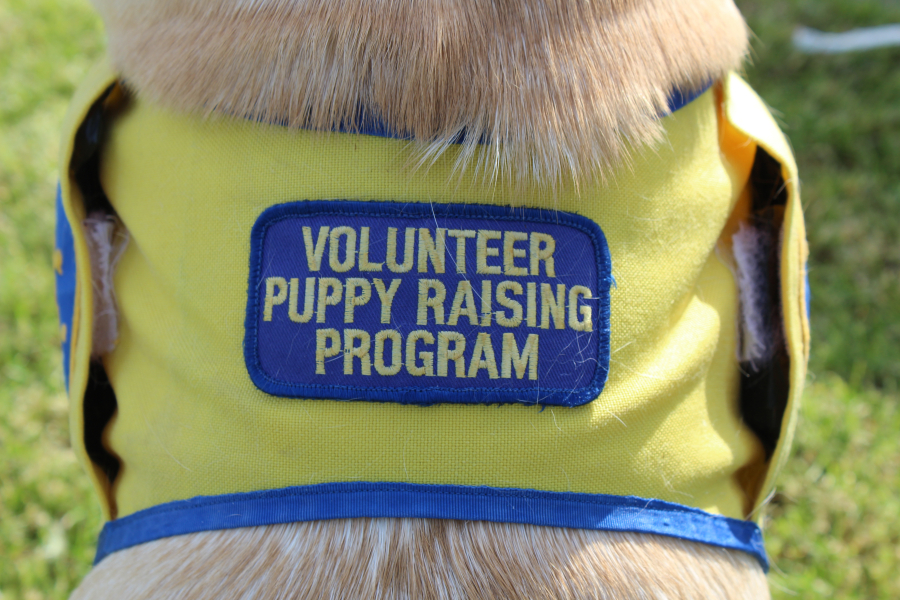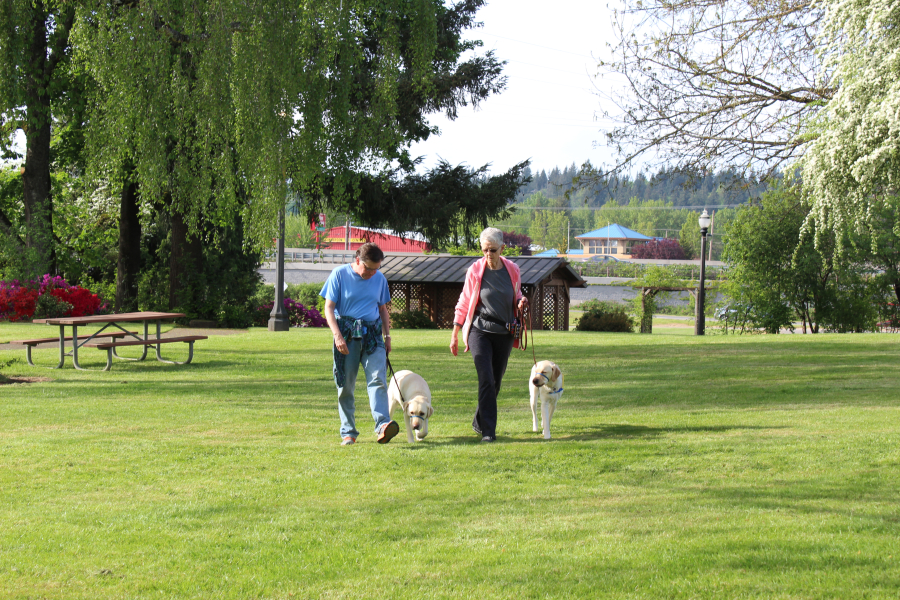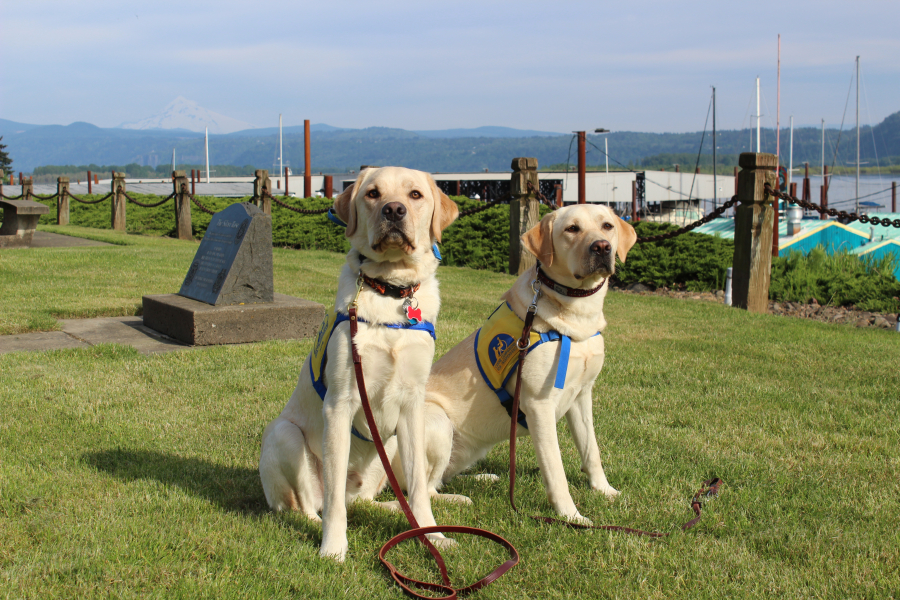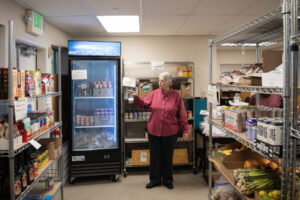Anyone who has ever witnessed a service dog helping their human companion navigate a busy intersection or exit a crowded bus, understands how easy it is to imagine that these superhero pups never went through a cute-but-naughty puppy stage — never chewed a shoe, decimated an entire bag of cat food or woke up howling for attention at 4 a.m.
In reality, these pups started out just like every other dog.
Susan Manuel, of Camas, knows this better than most.
A “puppy raiser” for the California-based group, Canine Companions for Independence (CCI), Manual has been helping raise would-be assistance dogs for the past decade.
“They don’t have to be perfect,” Manuel says of the puppies that make it through to the advanced training. “They look for a happy, healthy dog that likes to work.”
Manuel recently said goodbye to her seventh CCI puppy, “Maggie,” an agreeable 20-month-old golden retriever-labrador mix that had been Manuel’s sidekick for the past 18 months.
“Isn’t it hard to let them go?” a reporter asks Manuel, when she talks about taking Maggie to California for her advanced training and eventual placement with a companion.


